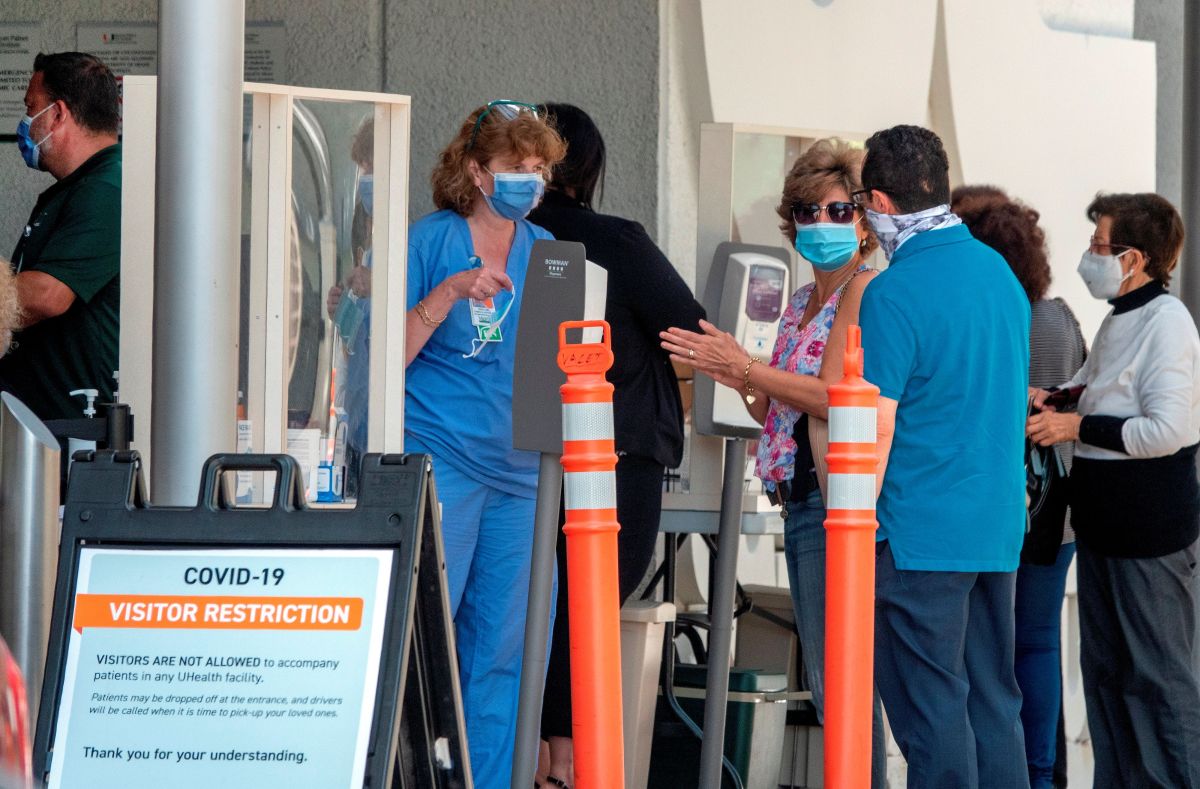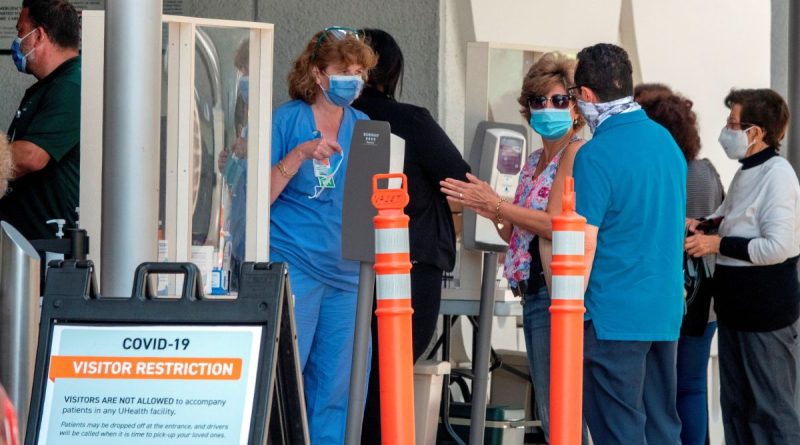December closed as the deadliest month and the most cases of coronavirus in the United States | The State

By: Lucía Leal
WASHINGTON – The United States began the new year this Friday with a worrying milestone, surpassing 20 million confirmed cases of COVID-19 while the British strain of the virus was detected in a more state and concern increased about the delays in the vaccination campaign.
The number of infections in the US has doubled in less than two months, since 10 million cases were reached on November 9, according to data from Johns Hopkins University, which prepares an independent count and this Friday rose to 346,800 the death toll in the country.
This fact illustrates the severity of the outbreak in the United States, which in December registered several daily records in the number of deaths from COVID-19 and closed 2020 with a record high of more than 125,000 hospitalized by the disease.
A quarter of the contagions in the world
The United States accounts for 24% of all COVID-19 infections in the world (which are 83.7 million, according to Johns Hopkins), and has registered almost twice as many cases as the second most infected country, India, a despite having less than a quarter of the population of the Asian nation.
The arrival in the country of the British strain of the virus, which can be up to 70% more contagious, promises to complicate that panorama and increase the pressure on already overwhelmed hospitals in many cases.
After what Colorado and California announced this week that they had detected two cases of the British strain, Florida It became the third state in the country to register it, after reporting on Thursday that it had confirmed the infection with that variant from a man in his 20s, with no travel history.
Experts believe the new strain is much more widespread in the country than has been detected, and may even become the predominant form of the virus in the US by March, predicted Dr. Trevor Bedford, an expert. in evolutionary biology in Seattle, speaking to The New York Times.
“Inexcusable” delays in vaccination
Added to this problem is the slowness in the vaccination campaign, which began on December 14 but has been plagued by delays in distribution and other logistical problems that are reminiscent, for many, of the fiasco that marked the start of the implementation of the tests. of COVID-19 last March.
“It is as incomprehensible as inexcusable that comprehensive vaccination plans have not been developed at the federal level and sent to the states as models,” said Friday the Republican Senator Mitt Romney, it’s a statement.
The senator criticized the management of the issue of the government of the outgoing president, Donald Trump, and proposed “to enlist any medical professional, retired or active”, to administer vaccines, in addition to “establishing vaccination sites” in every corner of each state, “Maybe in every school.”
As of this Wednesday, less than 2.8 million people had received the first dose of the vaccine, just 14% of the 20 million Americans that the Government planned to immunize before the end of December, according to data from the Control Centers and Disease Prevention (CDC).
Although it is possible that the actual number of vaccinations is somewhat higher due to the delay in reporting the figures for each state, the health authorities have recognized that this balance is “disappointing.”
Will the vaccines go bad?
Some experts caution that since vaccines should only be stored for 30 days in the portable freezers in which they are distributed, thousands of vials may expire by the end of January.
“Have we come this far to let our vaccines spoil in our freezers?” The New York Times newspaper asked this Friday in an editorial.
An isolated but disturbing event in this context of problems with the vaccination campaign was the arrest this Thursday in Grafton (Wisconsin, USA) of a pharmacist who “intentionally” thawed more than 500 doses of the COVID-19 vaccine , knowing that they would spoil.
It is not clear what prompted the pharmacist to remove all those vials of the vaccine from the refrigerator. Modern, and the hospital where he worked acknowledged that it had administered 57 of them before realizing they had gone bad.
The delay in administering the vaccines seems to be due mainly to a lack of adequate coordination between the federal government and the states and localities, which is slowing the distribution of doses to the hospitals and residences where they must arrive.
Federal authorities have left in the hands of local officials and hospitals, in many cases overwhelmed by the impact of the pandemic, many details of the final phase of the distribution and administration of the vaccines, such as the planning of schedules and personnel.
.



